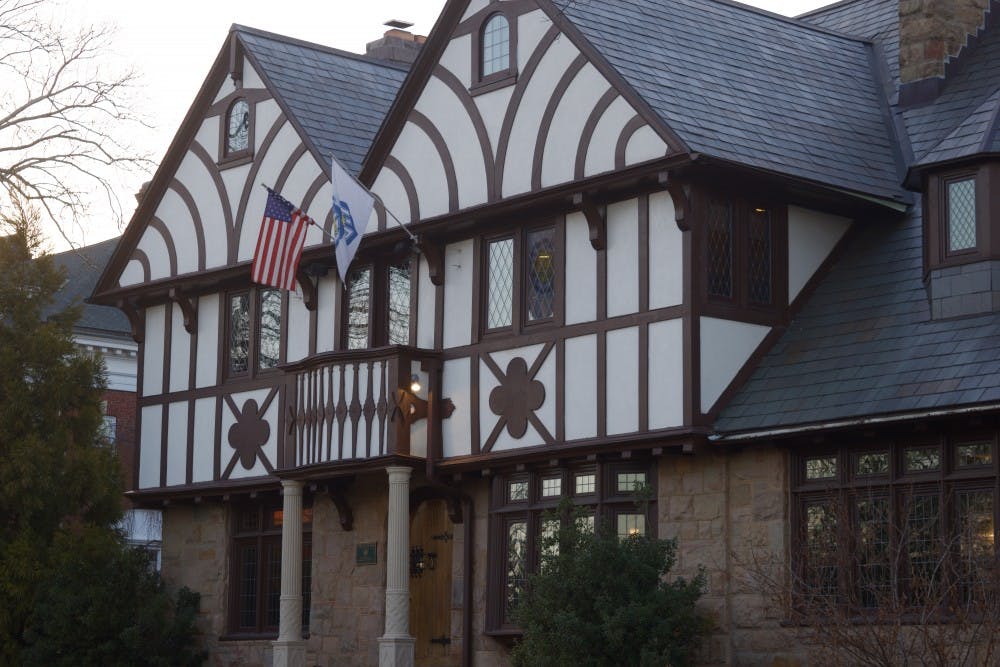Bicker week may be a thing of the past. The Interclub Council (ICC) is calling this winter’s new process Street week, hoping to “shift the language away from ‘bicker’ and towards a Street-wide admissions process,” according to ICC chair and Cloister Inn president Hannah Paynter ’19.
“This is a time to explore the Street as a whole,” Paynter wrote in an email to The Daily Princetonian.
This winter, eating club admissions will be consolidated into a one-week process for all clubs, in an effort to level the playing field between sign-in and selective clubs. The new process also does away with the first round of sign-ins.
On Jan. 20, sophomores can begin requesting invitations to recruitment events on the ICC website. Sophomores will be required to request information from at least one sign-in club.
Charter Club president Conor O’Brien ’19 said this requirement will have a positive effect on the sign-in clubs.
“You don’t have somebody saying, ‘I only want to bicker this club or these two clubs.’ They’re obliged to also find out a little bit about sign-in clubs and sign-in club culture,” he said. “Charter is sort of uniquely special…. I think that being able to show that in a more prominent way is going to be really positive, not just for Charter but for all of the clubs, to really showcase that there’s not this perceived distinction between Bicker clubs and sign-in clubs.”
On Sunday, Feb. 3, the start of Street week, clubs will begin holding recruitment events, which are permitted to go on until Wednesday, Feb. 6.


In an email to the ‘Prince,’ Quadrangle Club president Daniel Pallares Bello ’20 explained that recruitment events will seek to enable sophomores to make the most informed decisions possible when deciding between eating clubs.
“This year, there is a stronger push to engage with more clubs before making a final choice. All 11 clubs are going to have events for all sophomores throughout the week,” Pallares Bello wrote.

During the preference window, from Tuesday, Feb. 5, to Thursday, Feb. 7, students will rank the clubs. These rankings must include all five sign-in clubs, in addition to any clubs that a sophomore bickers. Though the timeline is still being finalized, Paynter wrote that the ICC has agreed on 8 p.m. Thursday as a deadline, to allow the ICC time to reach out to any sophomores who may have forgotten to fill out their rankings.
“This matching system will guarantee that every sophomore receives an offer on Friday morning,” Paynter wrote.
Andre Radensky ’21 said that, though he may give a second sign-in club slightly more thought this winter because of the new ranking system, he does not see the new process dramatically altering how fellow sophomores look at each eating club.
“I think a lot of prior thought goes into how people construct their own internal rankings,” he said. “I think that’s a process that happens for a while, even before actual Street week happens, so I don’t think it’ll change people’s decision-making all that much.”
However, Radensky added, “I don’t see that there’s a huge downside to it, except for slightly forcing people to make a lot of arbitrary distinctions towards the bottom of the list, given the fact that I think people know their top three.”
The clubs will be blind to the prospective members’ rankings on the website when making their admissions decisions. Friday morning, the ICC website’s matching mechanism will run, and offers will be released at 9 a.m. on Feb. 8.
In an email to the Prince, Paynter laid out how the ICC website’s mechanism will work.
“With the open club matching process, the website will match students with the highest possible rank,” she wrote. “The open clubs do not select their memberships. When the club reaches their membership cap (e.g. limit), the entire pool of students that ranked the club within that ranked category (e.g. ranked as first) will be run through a lottery system.”
For selective clubs, if a student gets accepted into two different clubs that they ranked above all five sign-ins, they will automatically receive an offer from whichever they ranked first. If a student is denied by their first choice, but selected by their second-choice club, the student will automatically receive an offer from their second choice. If not selected by either, they will still be automatically accepted into their highest-ranked sign-in club, depending on availability.
The new Street week setup also eliminates the first round sign-in period of previous years. Instead, students wanting to join a specific open club will simply rank that club first on their lists during the preference window.
“What I’m excited about this year at sign-in clubs,” wrote Pallares Bello, “is that sophomores can join a club at the same time [as their peers] and feel confident that members won’t know or care whether they were offered or denied membership at a different club.”
Radensky said he views the new measures as small, easily enactable changes that may help alleviate some of the psychological pressures of eating club selection.
“People not getting in anywhere sucks, and it feels awful,” he said. “There is definitely value in not saying, ‘Oh you didn’t get in anywhere,’ but instead, ‘You got in somewhere. Maybe this wasn’t your first choice,’ because people generally have a bias against hearing bad news versus good news that just isn’t their optimal good news.’’
“It sounds like a relatively low-cost solution that will probably have some benefits,” Radensky added.








